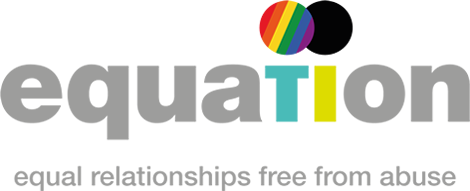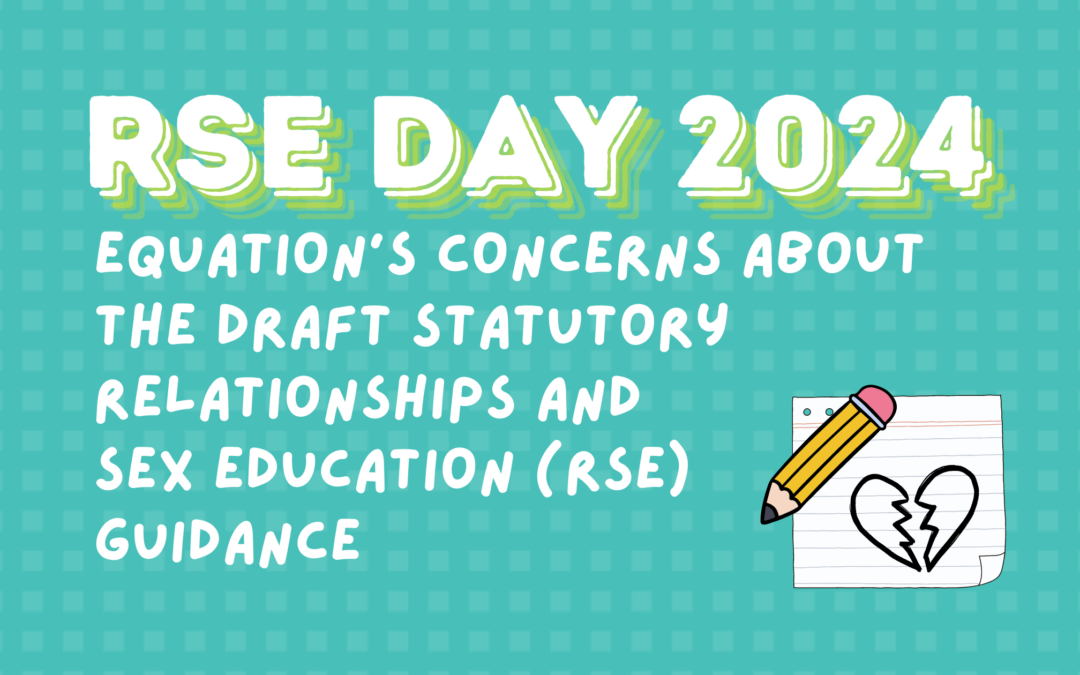RSE Day takes place today and has a strong history of celebrating the positive impact that Relationships and Sex Education (RSE) has on the lives of children and young people. To mark RSE Day 2024, we’re sharing our concerns on the proposed changes to the Statutory RSE Guidance for Schools currently open for consultation. If the proposal passes, it will see drastic limitations imposed reducing the effectiveness of RSE to protect young people from abusive behaviours.
Our biggest concern is the proposed restrictions on the education of key topics that impact young people. The guidance’s emphasis on RSE content being “age-appropriate” does not share the reality of the experiences of children and young people, and instead suggests neglecting to cover topics at the ages where preventative education would be most impactful. There are further concerns we have about the guidance, but here are the 5 topics we feel are of the upmost concern:
1) Domestic Abuse
1 in 3 children and young people are living with and experiencing the impacts of domestic abuse and 9 out of 10 domestic abuse incidents are heard or seen by children and young people. 25% of children and young people living in high-risk domestic abuse households are under 3 years of age. Yet, the first mention of Domestic Abuse is in the secondary school guidance:
“Schools should not teach about the details of violent abuse before year 9 as it is important that pupils are not introduced to distressing concepts when they are too young to understand them.”
Equation supports teaching younger age groups about domestic abuse so children and young people can seek support if it is happening in their own home. Our GREAT Project is delivered to year 5 and 6 pupils in an age-appropriate way and has had excellent feedback from children and teachers since it started in 2002:
As a result of The GREAT Project 99.8% of children in years 5&6 were able to identify where someone could get help and support – Project evaluation data
“The GREAT project is excellent, fantastic resources and great delivery. Raised sensitive issues in a safe and comfortable way.” – Primary School Teacher
2) Sexual Exploitation
The guidance states that concepts and laws relating to sexual exploitation and abuse, grooming, stalking, and forced marriage should not be taught before year 7. Research shows that children are most vulnerable to sexual exploitation between the ages of 13 and 15, though children can be targeted at a younger age, and understanding the signs and risks early on can reduce the vulnerability to exploitation.

3) Online Safety
The draft guidance explains that Youth Produced Sexual Imagery (commonly referred to as Sexting) should not be taught until year 7. A report looking into the online behaviours of young people aged 14-17 found that 48% of those surveyed had received a nude photo. This finding supports the idea that children and young people should be equipped with how to handle these situations and know how to report any images safely and access non-judgemental support.
“100% of young people evaluated, in year 9, thought it was important for young people to know about ‘Sexting’ and only 50% of those young people knew what Sexting was before the session.” – Imapct review of Equations Youth Produced Sexual Imagery Session.
4) Female Genital Mutilation (FGM)
The current guidance does not have an age rating for the teaching of Female Genital Mutilation (FGM), many schools choose to teach this topic towards the end of Primary School in response to an NHS report that found FGM is typically carried out on girls aged 5-9. The draft guidance has proposed specifically that FGM should not be talked about before year 9 (ages 13&14), which disregards the reality that FGM is likely to be carried out on girls younger than 13 in the UK.
5) Gender Identity
Finally, the proposed guidance also states that gender identity should not be recognised and taught in schools, it states:
“Schools should not teach about the broader concept of gender identity. Gender identity is a highly contested and complex subject….If asked about the topic of gender identity, schools should teach the facts about biological sex and not use any materials that present contested views as fact, including the view that gender is a spectrum.”
We reject this part of the guidance. Equation has a dedicated mission of contributing to a society in which people of all genders, have access to the same opportunities, rights, and obligations in all spheres of life. Equation understands that gender roles and relationships are not fixed; they evolve based on circumstances. Equation embeds this understanding of gender across the organisation and our services, including creating an inclusive space for children and young people of all genders to learn how relationships may impact them.

Conclusion
Equation knows from our experiences with safeguarding children, that many children and young people are exposed to harmful experiences regardless of their age. Often, it is only when children and young people are educated about unhealthy behaviours that they are empowered to seek support. This proposed guidance would delay vital information being taught and will reduce schools’ ability to safeguard effectively.
We are hopeful that through other organisations, and key individuals such as parents, teachers, survivors and students feeding into the consultation, the guidance will be amended before it is due to be published this year. In the meantime, we will continue our work in early intervention and prevention of domestic abuse and support schools to confidently deliver RSE topics through our Teacher Training sessions.
How to take action
Have your say. Anyone can respond to the draft Government guidance. The voices of teachers, parents, students and survivors must be heard.
About equation
Equation has designed and delivered award-winning early intervention and awareness-raising projects in schools since 2002, keeping up with emerging and current topics that impact children and young people. This year, we delivered sessions to over 14,000 children and young people in schools, colleges and community settings across Nottingham/Nottinghamshire. Next academic year, due to generous funding from Nottinghamshire Police and Crime Commissioner, we are set to educate over 20,000 children and young people.
Is it abuse
Not sure if what you're experiencing is abuse?
Get help
Stalking advisory service
Find out more.
How you can help
No matter how much time, money or resources you can afford to give, your support will make a difference.
£10
Give monthly
Could pay for four children
to take part in our early intervention projects
£30
Give once
Could pay for one primary school child to receive our healthy relationship education program
Support equation
Check out the other ways you can support us

